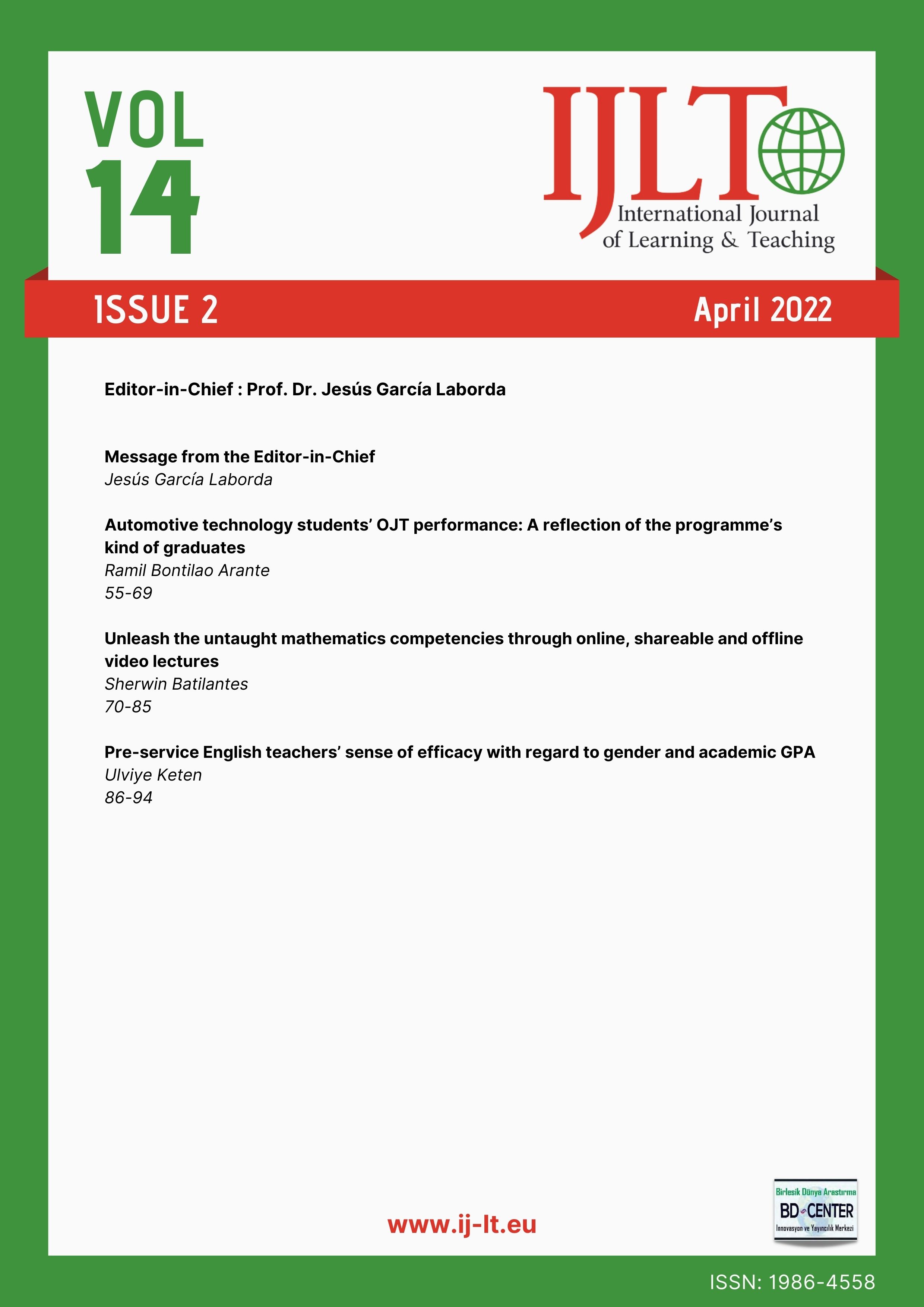Unleash the untaught mathematics competencies through online, shareable and offline video lectures
Main Article Content
Abstract
The study aimed to determine the benefits of project online, shareable and offline (OSO) video lectures to seventh-grade students during flipped classroom to resolve untaught mathematics competencies before the school year ended. The study employed the experimental research design, and three groups were randomly selected from the seventh-grade population as respondents. These three groups underwent pre-test and post-test during and after the intervention using the verified and quality-assured test questionnaires by an expert panel of evaluators. The study’s findings revealed that learners’ test scores differed significantly among the three groups based on one-way analysis of variance. However, the Tukey post-hoc test showed that the flipped online group differed substantially from the flipped shareable and offline groups. Consequently, project OSO was considered a valuable resource in the flipped classroom and is highly recommended for instructing learners when the teacher is out due to school-related functions among the three video lectures’ platforms.
Keywords: Ancillary service, flipped classroom, mathematics education, project OSO, unattained competencies;
Downloads
Article Details

This work is licensed under a Creative Commons Attribution 4.0 International License.
Authors who publish with this journal agree to the following terms:
- Authors retain copyright and grant the journal right of first publication with the work simultaneously licensed under a Creative Commons Attribution License that allows others to share the work with an acknowledgement of the work's authorship and initial publication in this journal.
- Authors are able to enter into separate, additional contractual arrangements for the non-exclusive distribution of the journal's published version of the work (e.g., post it to an institutional repository or publish it in a book), with an acknowledgement of its initial publication in this journal.
- Authors are permitted and encouraged to post their work online (e.g., in institutional repositories or on their website) prior to and during the submission process, as it can lead to productive exchanges, as well as earlier and greater citation of published work (SeeThe Effect of Open Access).
